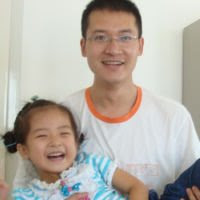Procter & Gamble is allowing another company access to its packaging technologies for the first time.
Food manufacturer ConAgra will get access to its industry-leading packaging and design skills in one of the most ambitious cooperation deals struck by the world’s biggest seller of consumer goods, the Financial Times reports.
P&G Vice-President of External Business Jeff Weedman said that under the deal "P&G's packaging capabilities are going to be applied to ConAgra's needs".
The deal has the potential to be one of the biggest to be developed under P&G's "connect and develop" open-innovation strategy.
The deal also covers P&G's nutrition-enhancing food ingredients.
Financial terms of the deal were not unveiled.
BAN CALLED ON REPACKAGED MEDICINE
Drug makers called on Thursday for a ban on the repackaging of medicines within the European Union in order to stamp out the growing threat of counterfeits.
"It is absolutely imperative, if we are going to try and protect consumers from counterfeits, that we do not allow a system that can take our medicines out of its packaging," industry association head and Bayer Healthcare CEO Arthur Higgins said.
Pharmaceutical manufacturers blame the legal practice of parallel trade - in which drugs bought in low-priced markets are repackaged and resold in high-price countries - for fuelling counterfeit traffic. Parallel traders deny the charge.
Preventing repackaging would deal a blow to the parallel trade and could also help drug makers' profits, since companies' revenues are currently eroded by arbitrage dealings in their products across borders.
Under current EU rules, medicines can be repackaged, relabelled and the tablets even removed from blister packs, all of which drug makers argue jeopardises security and provides an opportunity for criminals.
Counterfeit medicines, which may contain the wrong or even toxic ingredients, are on the rise worldwide. The World Health Organisation estimates they may make up 10% of the global pharmaceutical market.
The problem is most acute in developing countries but it is also increasing in Europe, with fake versions of life-saving drugs like AstraZeneca Plc's cancer medicine Casodex and Sanofi-Aventis SA's blood-thinner Plavix turning up in the supply chain in the past year.
Sanofi Chairman Jean-Francois Dehecq said counterfeiting was now being carried out on an industrialised scale, often by the same criminal gangs which dealt in narcotics.
"It is time for Europe to act as the driving force in the fight against this deadly crime," he said.
Dehecq and Higgins said they hoped for tougher EU legislation by the end of the year as part of a new pharmaceutical package being developed in Brussels.
In the meantime, the European Federation of Pharmaceutical Industries and Associations will launch a pilot scheme using complex bar codes and tamper-resistant packaging in Germany next year, designed to show that secure packaging for drugs is feasible.
In the long term, it wants to see a standardised and unique coding system for medicines across Europe.
Reuters
SCA AB TO DOWNSIZE
Swedish paper company SCA AB has announced plans to sell parts of its UK packaging operations to Spain's SAICA and will close down its New Hythe containerboard mill in Kent by 2010.
SAICA is paying £100m for SCA's conventional corrugated business.
After the sale, SCA will focus on specialised packaging in its operations in the UK and Ireland.
EAFA PRESIDENT RE-ELECTED
Hydro Aluminium's head of business unit foil Fred McDonogh has been re-elected President of the European Aluminium Foil Association (EAFA) for a second term.
Group Chairmen Michael Cronin of Flexible Packaging Europe and Hans Hogeveen of Rewinder Group were re-elected as EAFA Vice-Presidents.
Completing the board Felix Steinbrecher was newly elected as EAFA Vice-President representing the Container Group.
Source: packaging-technology
Subscribe to:
Post Comments (Atom)

No comments:
Post a Comment